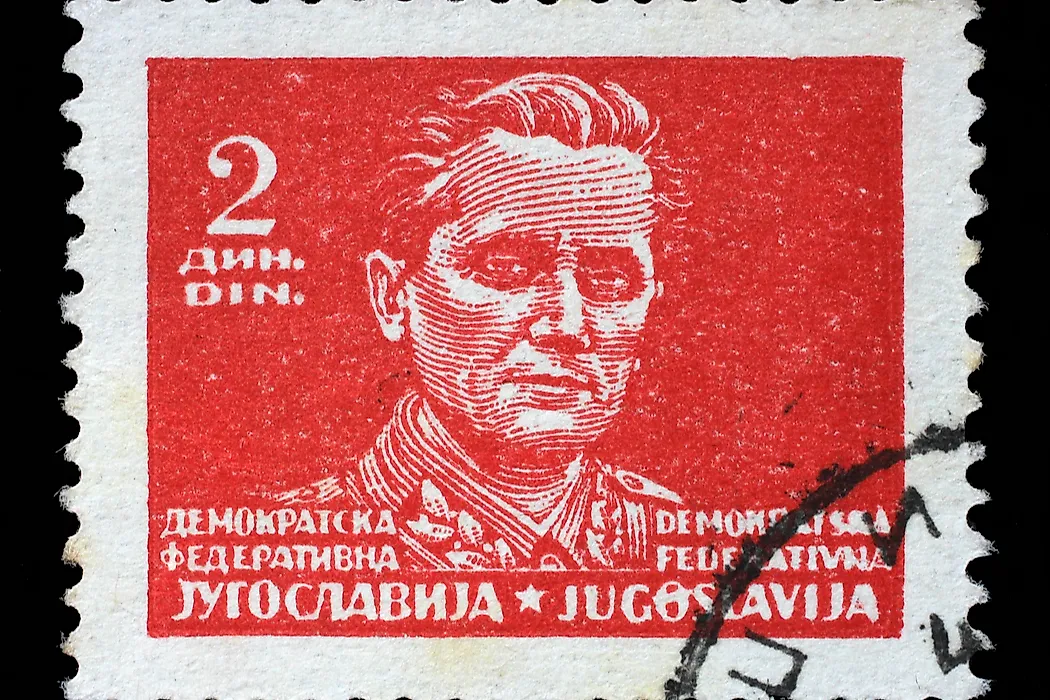Josip Broz Tito of Yugoslavia: Famous Heads of State

5. Early Life
Josip Broz Tito started his career as a revolutionary, ending as the long-serving President of Communist Yugoslavia. Tito was born in Kumrovec, then under the rule of Austria-Hungary in what is now Croatia, on May 7th, 1892. He grew up under his grandmother's care until the age of 7 in Podsreda Village, in what is now Slovenia. He only returned to his village of Kumrovec to his parents to attend primary school in 1900. In 1907, at the age of 15, Tito again left home to work in Sisak as a machinist. There, he joined the Social-Democratic Party of Croatia. In 1913, he also traveled to Mannheim to work for the Benz car factory, and was later employed by Daimler as test driver in Austria.
4. Rise to Power
At age 21, Tito joined a Croatian regiment in the Austro-Hungarian Army after being conscripted, and attended a school for non-commissioned officers, making him a Sergeant. In 1914, he was in Galicia fighting against Russia, and was the youngest Sergeant Major in the army. Later, he was to be awarded the Silver Bravery medal for outstanding valor, and was taken prisoner of war by the Russians in 1915. In a Russian work camp, he escaped and joined the Bolsheviks in 1917. By January of 1920, Tito was now married and returned to what at that time had become the kingdom of Yugoslavia, and joined the Communist Party there in 1934. In 1937, he was made the Secretary General of the Communist Party of Yugoslavia, and would lead that party until his death in 1980.
3. Contributions
All the years he spent as a common worker, soldier, agitator, prisoner and Communist Party member had helped prepared Tito for his future as the leader of his country. From 1945 to 1980, Tito was the head of state of Yugoslavia. He brought his own brand of relaxed Communism, which enabled his country to enjoy good relations with non-Communist countries. At this time, many Germans, Italians, Czechoslovakians, and Hungarians were all welcomed in Yugoslavia. Tito achieved an economic boom for Yugoslavia in the 1960s and 1970s, largely as a result of his non-alignment policy regarding relation with the Soviet Union. In 1971, he created a 22-member Collective Presidency from the six republics (Slovenia, his native Croatia, Bosnia and Herzegovina, Serbia, Montenegro, Macedonia and two autonomous provinces (Kosovo and Vojvodina) that constituted the Socialist Federal Republic of Yugoslavia that he led.
2. Challenges
As leader of Yugoslavia, Tito faced many challenges, both at home and abroad. His internal challenges included the refusal of the Croatians and Slovenians in the sharing of their profits with the less profitable areas of Yugoslavia. As a result, many of their leaders who were for independence were either exiled or sent to labor camps by Tito. From abroad, he also broke away from the Soviet Union in 1948 as part of his policy of non-alignment, resulting in U.S. non-interference with Yugoslav affairs. However, this created a major rift between him and Stalin, and resulted in the expulsion of Yugoslavia from the International Association of Socialist States in 1949.
1. Death and Legacy
Josip Broz Tito introduced many reforms in Yugoslavia that improved the welfare of his countrymen. He was made "president for life" in 1974 but, on May 4, 1980, Tito succumbed to gangrene, after his left leg was amputated due to arterial blockages and became infected. The funeral that followed was attended by statesmen, politicians, kings, and princes from 128 countries, and was the largest state attendance for a funeral in history up to that time. This respect for Tito came as he was the founder of the Non-Aligned Movement (of countries with the Soviet Union) and as one of the Allied leaders in World War II. He brought many changes that were firsts in Yugoslavia, and ultimately encouraged many of the leaders that would follow him as well. Despite so much good will, however, Tito is often criticized as an authoritarian and dictator who deal with his opponents harshly. Today, the cities of Titovo Velenje (in Slovenia), Titov Vrbas ( in Vojvodina), Titova Mitrovica (in Kosovo), Titovo Uzice (in Serbia), Titograd (in Montenegro), Titov Veles (in Macedonia), Titova Korenica (in Croatia), and Titov Drvar (in Bosnia and Herzegovina) have all borne his name to honor him.











